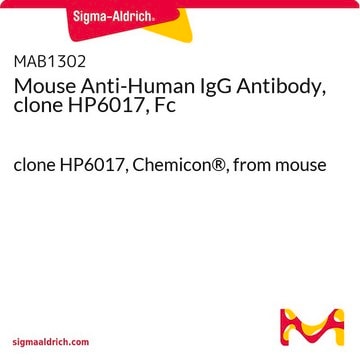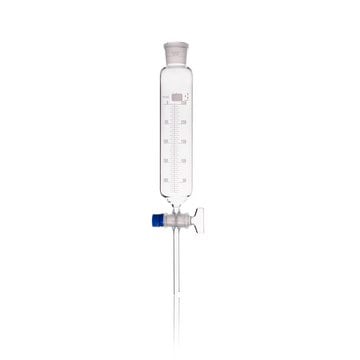MAB1308
Mouse Anti-Human IgG2 Antibody, clone HP6002, Fc
clone HP6002, Chemicon®, from mouse
Synonym(s):
Anti-Anti-CD32, Anti-Anti-CD32B, Anti-Anti-FCG2, Anti-Anti-FCGR2, Anti-Anti-FCGR2C, Anti-Anti-FcGRIIB, Anti-Anti-FcRII-c, Anti-Anti-FcgammaRIIb, Anti-Anti-IGFR2
About This Item
Recommended Products
biological source
mouse
Quality Level
antibody form
purified immunoglobulin
antibody product type
secondary antibodies
clone
HP6002, monoclonal
species reactivity
human
manufacturer/tradename
Chemicon®
technique(s)
ELISA: suitable
radioimmunoassay: suitable
western blot: suitable
isotype
IgG1
NCBI accession no.
UniProt accession no.
shipped in
wet ice
target post-translational modification
unmodified
Gene Information
human ... FCGR2B(2213)
Related Categories
Specificity
human IgG subclass 4- 0.01% Isoelectric Focusing: mean pI 7.1
Application
Final working dilutions must be determined by end user.
Linkage
Physical form
Storage and Stability
Other Notes
Legal Information
Not finding the right product?
Try our Product Selector Tool.
Storage Class Code
10 - Combustible liquids
WGK
WGK 2
Flash Point(F)
Not applicable
Flash Point(C)
Not applicable
Certificates of Analysis (COA)
Search for Certificates of Analysis (COA) by entering the products Lot/Batch Number. Lot and Batch Numbers can be found on a product’s label following the words ‘Lot’ or ‘Batch’.
Already Own This Product?
Find documentation for the products that you have recently purchased in the Document Library.
Our team of scientists has experience in all areas of research including Life Science, Material Science, Chemical Synthesis, Chromatography, Analytical and many others.
Contact Technical Service







